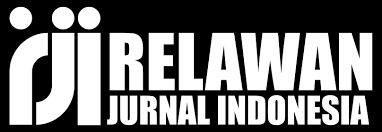Penerapan Prinsip Ekonomi Islam dalam Meningkatkan Pertumbuhan Ekonomi Negara Berkembang di Asia
DOI:
https://doi.org/10.61722/jiem.v3i5.4639Keywords:
Economic growth, financial inclusion, Islamic economics.Abstract
This research discusses the application of Islamic economic principles in enhancing economic growth in developing countries. Developing countries often face issues of economic inequality, poverty, and unemployment, which can be addressed through an economic approach based on moral values and social justice. The theory used in this research includes maqasid al-shariah, which emphasizes social welfare, as well as Islamic economic principles that prohibit riba, gharar, and maysir, and implement profit-sharing systems in financing. Additionally, this research examines the role of zakat and waqf as instruments of wealth redistribution that can reduce social inequality. The research method used is qualitative with a library study approach, collecting and analyzing relevant literature to support the understanding of the application of Islamic economic principles. The findings indicate that the application of Islamic economic principles can create more inclusive and sustainable economic growth, improve societal welfare, and reduce socio-economic inequality in developing countries. Sharia financial concepts, such as mudharabah and musyarakah-based financing, also provide fairer access to financing for small and medium-sized enterprises. Overall, Islamic economics offers an effective alternative in addressing various economic challenges in developing countries.
References
Ahmed, H. (2004). Role of Zakah and Awqaf in Poverty Alleviation. Islamic Development Bank. Jakarta: Pustaka Lentera.
Ahmed, H. (2004). Role of Zakah and Awqaf in Poverty Alleviation. Saudi Arabia: Islamic Development Bank Group.
Badan Wakaf Indonesia (2022). Laporan Tahunan Wakaf Produktif.
Bank Indonesia (2021). Peran Keuangan Mikro Syariah dalam Pemberdayaan Ekonomi Masyarakat.
Chapra, Muhammad Umer (2008). The Islamic Vision of Development in the Light of Maqasid al-Shariah. London: The International Institute of Islamic Thought.
Cizakca, Murat. (2000). A History of Philanthropic Foundations: The Islamic World from the Seventh Century to the Present. Istanbul: Bogaziçi University Press
Iqbal, Zamir & Abbas Mirakhor. (2011). An Introduction to Islamic Finance: Theory and Practice. Singapura: John Wiley & Sons (Asia) Ptc. Ltd.
Islamic Finance Development Indicator (IFDI, 2022). Islamic Finance Growth Report.
Mohd Thas Thaker, H., Mohammed, & J. Duasa. (2016). The Impact of Productive Zakat Distribution on Economic Growth and Household Welfare: A Case Study in Malaysia.
Obaidullah, M., & Shirazi, N. S. (2015). Integrating Zakah and Waqf into the Poverty Reduction Strategy of the IDB Member Countries. Islamic Research and Training
Institute.
Qardawi, Yusuf. (1999). Fiqh al-Zakah: A Comparative Study. Kuala Lumpur: Islamic Book Trust.
Siddiqi, Mohammad. N. (2006). Islamic Banking and Finance in Theory and Practice. Islamic Economic Studies, Aligarh Muslim University (AMU) Vol. 13, No. 2.
United Nations Development Programme (UNDP, 2022). The Role of Islamic Social Finance in Sustainable Development: Case Studies from Sudan.
Downloads
Published
Issue
Section
License
Copyright (c) 2025 JURNAL ILMIAH EKONOMI DAN MANAJEMEN

This work is licensed under a Creative Commons Attribution-ShareAlike 4.0 International License.












